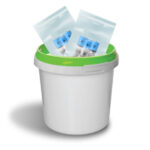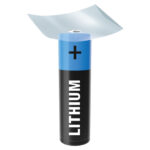
Saturday, November 4 – Friday, November 10, 2023
Join libraries across BC to focus on the climate change related challenges and emergencies facing our communities. Our goal is to raise awareness, answer our communities’ growing needs, and articulate clearly that libraries are places to connect people and access resources on climate change.
Climate Action Reading List
A list to educate, inform, and empower you to take action. Climate change is real and these books are a great start to taking action.
BC Libraries Presents: Conversations on Climate
BC Libraries Present is a new virtual author series that brings new insights and voices to people in every corner of British Columbia.
For the inaugural season, the topic is climate change. A topic that touches everyone’s lives, homes, jobs, and even their reading choices, and was a natural place to start.
John Vaillant: Our New Fire Weather on November 8 from 6:30 to 8:30 p.m.

Fire has changed communities across BC this year. After the most devastating wildfire season in recorded history, many are wondering how these fires got so big, what we can learn from our current responses, and whether we are prepared for an ever warming future.
John Vaillant’s book Fire Weather has become a de-facto guide on the new dangers posed by these fires supercharged by a warming planet. He’ll discuss his findings on the Fort McMurray fire of 2016, to help us understand what’s at stake for our cities, towns, and ecosystems.
Moderated by Fatima Syed, climate reporter at The Narwhal.
Register for this virtual event.
Recycle Your Batteries at the Whistler Public Library
Batteries make our lives more convenient, but they contain toxic chemicals that can harm the environment and are a potential fire hazard. That’s why you should never throw them out.
Collect, protect, and drop off your batteries at the library every 3 months!
 Step 1: Collect
Step 1: Collect
Don’t throw out that one used battery you just replaced. Put it in a non-metal container such as a shoebox, plastic takeout container, or glass jar. Soon enough, they’ll add up.
 Step 2: Protect
Step 2: Protect
Reduce the risk of sparks. Use non-conductive tape to cover the positive terminal of lithium, small sealed lead acid (SSLA), button cell and alkaline batteries over 12V. Alternatively, place them in individual plastic bags. Keep your batteries in a cool, dry location, away from the sun.
 Step 3: Drop Off
Step 3: Drop Off
Drop off your collected batteries every 3 months at your closest Call2Recycle drop off location (the Whistler Public Library) to avoid corrosion.




















